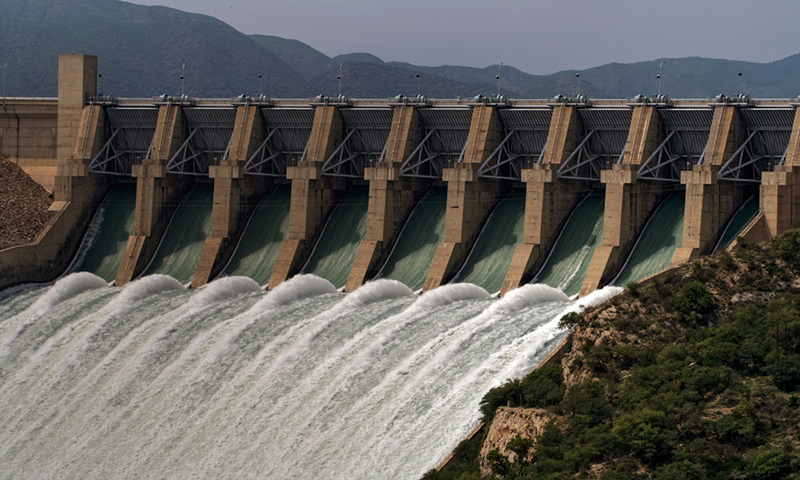Pakistan is a developing country that is improving and growing by leaps and bounds. To meet the growing utility needs of the population and irrigation, there are several under-construction power projects in Pakistan that are in place.
These projects will not only increase the power capacity of the country but also provide the population with water resources for irrigation and drinking purposes. Luckily, Pakistan is blessed with various dams and currently, the government is taking many initiatives to increase the capacity of power.
Today, Graana.com bring you a concise yet informative blog discussing the under-construction power projects in Pakistan. To know more about the projects, keep on reading.
Dasu hydropower project
The first power project on our list is the Dasu Hydropower project. It is located near Dasu town, near Kohistan District of Khyber Pakhtunkhwa (KPK) province.
The Project includes a 4,320MW hydropower plant on the Indus River. The Project is located around 74km downstream of the famous Diamer Basha Dam, 240km upstream of the Tarbela Dam, and 345km from Islamabad.
Pakistan’s Water and Power Development Authority (WAPDA) is responsible for the Project, and it is developed in two stages.
The Project is a part of the Vision 2025 Program planned by WAPDA in 2001 and the Power Policy 2013 of the Government of Pakistan (GOP). The Project will include 12 hydropower units with a capacity of 360MW each.
Out of these 12 units, the first six will be installed in the first phase, and the other six will be added in the second phase. Phase one will produce an annual output capacity of 12,300 GWh. On the other hand, phase two will also have around 21,700GWh.
The construction works of the main dam began in mid-2017, with phase one scheduled to be online by 2023.
The Project’s first phase includes constructing a majestic roller-compacted concrete (RCC) gravity dam with ancillary structures and an underground powerhouse, six turbo generators, and a transmission line consisting of 500kV. The remaining turbo units will be completed in the second phase, and a double-circuit 500kV transmission line will also be made.
For this Project, WAPDA is planning to acquire 9,970 acres of land, out of which 2,029 acres are planned for main civil works construction. Another 741 acres were further added to the Project.
Kurram Tangi Dam
The second power project in Pakistan is the Kurram Tangi dam project. It is a dam located near the Kaitu River in North Waziristan, Pakistan.
It is around 14 km upstream of Kurram Garhi Headworks and 32 km north of Bannu City in the Federally Administered Tribal Area (FATA).
The dam has a capacity of 83.4 MW of power. Like the previous power project, this project also consists of two phases. In the first phase, an 18 ft-tall weir on the Kaituna River will be constructed.
This phase is expected to complete within three years. It will also allow the irrigation of 16,000 acres of land in the North Waziristan Agency. Also, around 18MW of electricity will be generated from this power project.
The whole project will look after the irrigation of 84,380 acres and have a hydropower generation capacity of 83.4 MW. The power project will also support 278,000 acres of the existing system of Civil and Marwat Canals.
Keyal Khwar Hydropower Project
This power project is located at Keyal Khwar Nallah, a tributary of the Indus River in the Lower Kohistan District of Khyber Pakhtunkhwa. It is also situated 310 km from Islamabad on Karakoram Highway. It is around 265 km from the federal capital of Islamabad and 350 km from the provincial capital of Peshawar in the Islamic Republic of Pakistan.
The total electricity generation capacity of the Khan Khwar Project is around 72 megawatts (97,000 hp). There are two turbine units of 34 MW each and one unit of 4 MW installed at Khan Khwar Hydroelectric Station with an average annual generation capacity of 595 million units (GWh) of cheap electricity.
Dongfang Electric Machinery Co. Ltd made these turbines and installed them. This Project is a joint venture with the technical assistance of Chinese corporations (Sinohydro Corporation via a consortium with China Water Resources Beifang Investigation, Design and Research Co. Ltd).
Mangla Power Refurbishment

The Mangla power refurbishment program includes the improvement and expansion of the Mangla dam, one of the major dams in Pakistan. The dam is located at the River Jhelum, around 120 Km from Islamabad. The primary purpose of the dam was the irrigation of nearby areas. Other uses of the dam included Power Generation, Fish Culture, Tourism, and Navigation.
Mangla Power House was completed in four stages. The initial phase comprising four units of 100 MW each was completed in 1967-69. Due to sediment deposition, the capacity of the dam decreased from 5.88 MAF to 4.674 MAF.
To recover the reduction in capacity, the raising of Mangla Dam was started in 2004, and the Project was completed in 2009. The Dam height has been raised by 30 feet while the maximum conservation level increased from 1202 feet to 1242 feet, corresponding to the additional water storage capacity of 2.88 MAF.
In the Mangla Refurbishment Project JV (MRP JV), a feasibility report was presented, directed towards the up-gradation from 1000 to 1310 MW at 0.8 Power Factor.
Warsak Dam

Last but not least is the Warsak Dam project. It was a joint venture between Canada and Pakistan. The dam consists of two phases. In the first phase, four generating units of 40 MW capacity each were constructed.
The 2nd phase began in 1975, and two more 41.48 MW units were made between 1980-81. The total capacity of the dam was 242.96 MW.
However, over time, the capacity decreased to 150 MW. There were two reasons behind the reduction: Structural deformation of the powerhouse and Rapid erosion in the hydraulic equipment due to environmental issues.
In the rehabilitation of the dam, some of the tasks conducted by the authorities include:
- Re-alignment of Power House crane rails.
- Replacement of cracked or badly worn-out crane wheels.
- Provision of 2 overhead cranes
- Repair of roof leaks.
- Repair of structural roof steel.
- Repair of Power House concrete floors and walls
- Mechanical and Electrical Works
- Refurbishing of the butterfly valves of units
- Installation of slip joints units
- Refurbishing of the damaged mechanical components of all six units.
- Rectification of defects in the draft tube gates and gantry crane mechanism.
- The alignment of turbine/generator units is in progress.
- Replacement of stator windings with the provision of one winding as spare.
- Replacement of the main circuit breakers of the switchyard was completed.
- Remedial Measures To Reduce The Amount Of Sediment To Power Tunnels.
Warsak and its rehabilitation are crucial because it plays a significant role in establishing voltage in Peshawar, Kohan, Parachinar, and Bannu.
So, these are some of the under-construction power projects in Pakistan. All these projects carry equal importance and are needed to irrigate their neighbouring sites and for drinking purposes.
We hope you enjoy the blog and learn more about dams in Pakistan. If you have any queries or suggestions, let us know in the comment section below, and we will get back to you as soon as possible.




